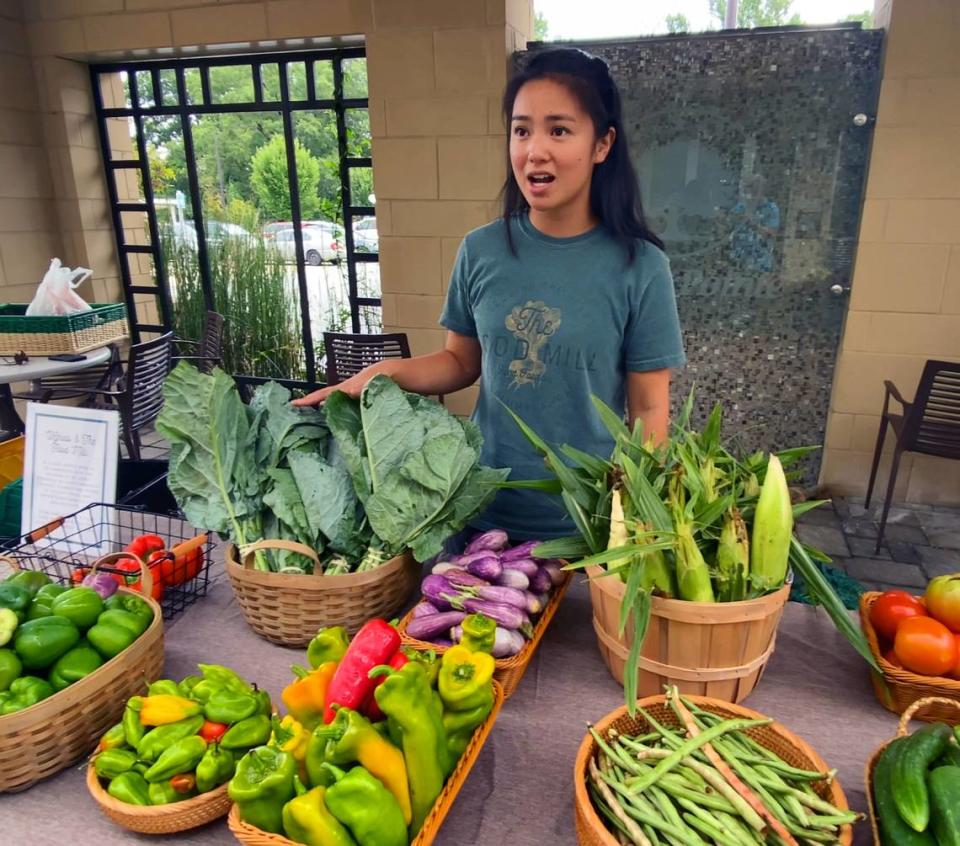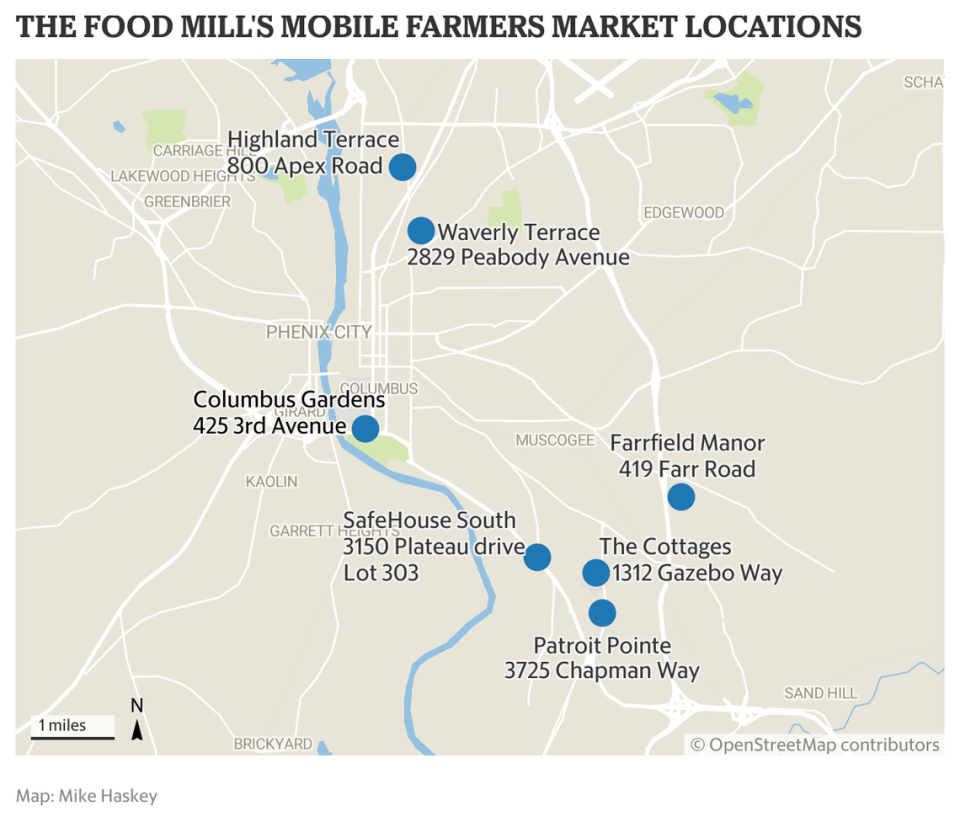Columbus groups hope to make city healthier with mobile farmers market and clinic
A mobile farmers market partnered with a mobile health unit to increase communal access to fresh food and health screenings as part of the Mayor’s Health Commission.
The commission’s goal is to improve Columbus residents’ health by reducing heart disease, diabetes, stroke and cancer.
Mobile health units, the mobile farmers market and a recreation vehicle will be visiting neighborhoods throughout Columbus as part of the program. The combined mobile teams have already begun going out, but the recreation vehicle is on backorder, said Phil Shuler, co-chairman of the commission.
Parks and Recreation, which would operate the vehicle, is trying to develop a temporary vehicle they can use until the department receives the ordered truck.
“They ordered it a while back,” Shuler said. “But with the whole supply chain thing, it’s taken a while to get it.”
The commission is planning a launch event with all the mobile vehicles in the fall, Shuler said, but residents can take advantage of these resources now.
‘Increase access for the most number of people’
The Food Mill is a “multifunctional food farmacy” working to decrease food insecurity and high rates of diet-related illnesses in Columbus. Located on 2nd Avenue, the Food Mill has operated an indoor farmers market for years, said Tenaya Stecker, manager of the mobile farmers market. By making it mobile, she said, the Food Mill is extending existing programs.
Last week Piedmont’s mobile health unit and the farmers market posted up at Patriot Pointe, a senior residency affiliated with the Housing Authority, allowing the community’s residents to get their blood pressure checked at the health clinic before shopping at the market.
“We take double SNAP,” Stecker said. “Meaning if someone’s paying with an EBT card, they get a 50% discount.”
If a customer makes too much money to qualify for SNAP, she said, they may still be eligible for another discount program the farmers market offers.
“We just try to increase access for the most number of people,” Stecker said.
The food they sell is bought locally in the state of Georgia or within 150 miles of Columbus, she said. The food sold at Patriot Pointe last Monday was picked by farmers earlier in the day, Stecker said.
Stecker likes to make sure the market is visually appealing with collard greens, tomatoes, sweet peppers and eggplant organized in baskets.

“The aim is to provide an affordable and accessible experience,” Stecker said. “But that doesn’t mean that it shouldn’t be fun.”
The mobile market currently stops at seven locations across the city, and she expects to add more locations to the schedule in time.

Buying local and in season
The Food Mill incorporates one important element with the mobile market: educating customers about eating local and seasonally.
People are used to purchasing everything in the grocery store all the time, Stecker said, but in the peak of August, crops like collard greens or turnips haven’t come in yet.
“That whole concept of seasonality has kind of been pushed out of people’s minds because of grocery stores,” she said.
MercyMed farmer Keith Sims, who is one of the market suppliers, said at the end of summer okra, eggplant and peppers can grow through September.
“And then once September and October comes, we’re looking at all the leafy greens,” Sims said.
Fall vegetables include collard greens, kale, cabbage, rainbow chard, turnips, beets and carrots.
The mobile market is not only a good way to give more people access to healthy food, Stecker said, but it’s also a way to support local farmers by giving them an avenue to sell their produce.
“A lot of growers, they’re farmers full-time,” she said. “So, they don’t have time sometimes to go to Saturday markets or Friday markets.”
Loading the produce, travel and setting up can take a long time for farmers, Stecker said, so the Food Mill’s indoor and mobile farmers markets aid suppliers in the process. Some of the market’s suppliers include:
Buying from local farmers helps consumers have more trust in their food because they’re able to visit the farm, learn why the farm produces its crops and the tactics used in growing the vegetables, Sims said.
“It empowers the customer to be able to know their farmer instead of the farmer being behind basically a shield and distance,” he said.
‘Food and medicine go hand-in-hand’
Food insecurity and food deserts were identified as problems that needed to be prioritized by Piedmont Columbus Regional’s Community Health Needs Assessment, which is conducted every three years, said Piedmont Community Outreach Manager Melonese Close.
This assessment is the reason Piedmont began its mobile health unit, she said, and why the partnership with the mobile food market was a good opportunity.
The unit was already going to targeted communities in Columbus to provide access to medical care, Close said, and a lot of the same zip codes also fell into areas that were food deserts or had food insecurity.
“We felt that this would be a natural partnership to go out,” she said. “Have our team provide blood pressure screenings with also health education information that suggests foods that would be great for hypertension and low sodium.”
Providing blood pressure checks helps residents monitor trends in their blood pressure, Close said, and determine whether someone should call their doctor. By having more people be proactive about hypertension, visits to the emergency room can be decreased.
High blood pressure can be a key indicator that a patient is at an elevated risk for chronic diseases and illnesses such as stroke, heart disease and diabetes.
“We’re recommending to them that food and medicine go hand-in-hand as a prescription for a better community,” Close said.

